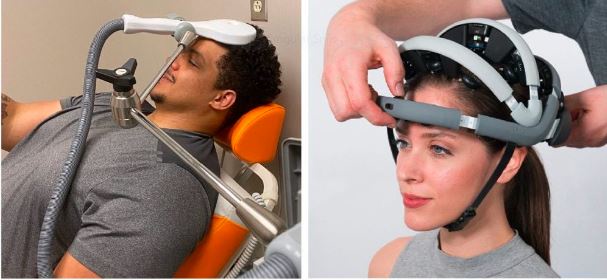Anxiety, a pervasive mental health condition affecting millions worldwide, has long posed a challenge for effective treatment. Transcranial Magnetic Stimulation (TMS), initially recognized for its success in treating depression, is emerging as a promising therapeutic avenue for anxiety disorders. This article explores the top five benefits of Transcranial Magnetic Stimulation for anxiety, shedding light on its transformative potential for reshaping mental health care.
- Precise Targeting of Anxiety-Related Brain Regions
TMS therapy employs magnetic fields to stimulate specific brain regions, and its precision makes it an ideal candidate for addressing anxiety. The dorsolateral prefrontal cortex, a key area associated with emotional regulation, is a primary target during TMS sessions for anxiety. By modulating neural activity in this region, TMS works to rebalance the intricate network of brain circuits involved in anxiety disorders. This targeted approach enhances the therapeutic efficacy of TMS and minimizes the impact on unaffected brain areas.
- Non-Invasiveness and Minimal Side Effects
Anxiety sufferers often face the dilemma of choosing between medications with potential side effects and invasive procedures. TMS therapy, however, stands out for its non-invasive nature and minimal side effects. During a TMS session, patients experience a painless procedure involving the placement of an electromagnetic coil on the scalp. The most common side effects are mild and transient, such as mild scalp discomfort or headaches. This non-invasive and well-tolerated aspect of TMS makes it an attractive option for individuals seeking anxiety relief without the burden of significant side effects.
- Effectiveness in Treatment-Resistant Cases
For individuals who do not respond adequately to traditional anxiety treatments, TMS presents a beacon of hope. TMS has shown significant promise in treating anxiety, even in cases that are resistant to medications or psychotherapy. Research indicates that the benefits of transcranial magnetic stimulation extend beyond its immediate effects, leading to enduring improvements in anxiety symptoms. This makes TMS a valuable option for those who have struggled to find relief through conventional treatments.
- Reduction of Generalized Anxiety and Specific Phobias
TMS therapy demonstrates versatility in addressing various manifestations of anxiety, including generalized anxiety disorder (GAD) and specific phobias. By modulating neural activity in the prefrontal cortex, TMS works to alleviate the pervasive worry and fear associated with generalized anxiety. Moreover, studies suggest that TMS may be effective in reducing the intensity of specific phobias, offering a targeted approach to address the irrational fears that can significantly impact an individual's daily life.
- Enhanced Quality of Life and Functionality
Beyond symptom reduction, TMS therapy contributes to an improved overall quality of life for individuals grappling with anxiety. As anxiety symptoms diminish, patients often report enhanced functionality in daily activities, improved concentration, and a more positive outlook on life. The transformative impact of TMS on both the psychological and functional aspects of anxiety makes it a valuable tool for those seeking comprehensive relief and an opportunity to reclaim a fulfilling and balanced life.
Transcranial Magnetic Stimulation stands at the forefront of innovative treatments for anxiety, offering a range of benefits that go beyond traditional approaches. Its precise targeting of anxiety-related brain regions, non-invasive nature, effectiveness in treatment-resistant cases, versatility in addressing different anxiety manifestations, and contribution to an enhanced quality of life make TMS a beacon of hope for those navigating the complex terrain of anxiety disorders. As research continues to unfold, the full potential of TMS in transforming anxiety treatment holds promise for a brighter future in mental health care.


No comments yet